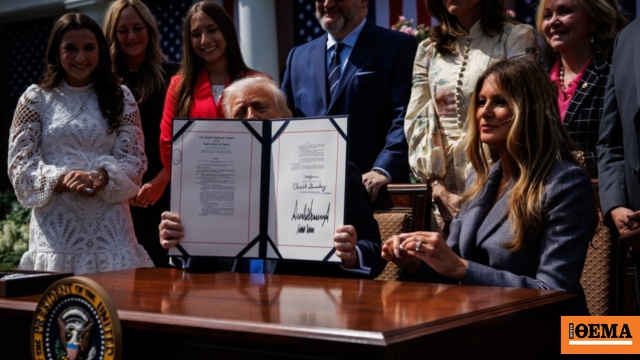Labour rights, transparency concerns in Brazil’s leather supply chain

The research, which spanned six months in 2024 studied more than 100 sources, including scholarly articles, studies, opinion pieces, and news coverage, as well as interviews with 19 key stakeholders.
The report titled ‘Toward promoting human rights and decent working conditions in the leather supply chain,’ aims to provide a detailed examination of Brazil’s leather sector, assessing both its global and national dimensions to pinpoint labour and human rights challenges, chart obstacles, and highlight ongoing efforts.
Go deeper with GlobalData
FLA executive vice president and chief innovation officer Richa Mittal said: “By illuminating challenges in upstream supply chains for commodities like leather, we aim to drive accountability and inspire collective actions toward a more equitable industry. This will help ensure dignity and respect for all workers at all levels of a company’s global supply chain – not just Tier One.”
The leather sector in Brazil with a valuation of approximately $3bn, holds the position of the world’s third-largest after Italy and the US, notes the report.
Annually, Brazil processes around 40m hides and serves 80 different international markets. The European Union receives a significant portion of these exports, accounting for 25% or roughly 8m hides. The industry is supported by 244 tanneries and provides employment to around 30,000 individuals within the country.
Projections indicate that over the next 20 years, the Brazilian beef industry may witness a growth of 35%. The expansion of this sector is closely linked to the leather industry, which plays a critical role.

Don’t let policy changes catch you off guard. Stay proactive with real-time data and expert analysis.
By GlobalDataNotably, Brazilian leather sees a high export rate with over 80% being shipped abroad, in stark contrast to beef production where only 20% reaches foreign markets.
Key insights on the Brazil leather supply chain
Supply chain opacity: A disconnect among farms, slaughterhouses, and tanneries leads to information gaps, reduced traceability of products, undisclosed operations and limited insight into labour conditions.
Labour and human rights concerns: Workers are said to encounter considerable hazards throughout the leather production cycle:
• Slaughterhouses grapple with ongoing worker mistreatment, psychological distress, gender bias, safety issues, and more
• Tanneries are plagued by exposure to harmful chemicals, child labour risks, temporary employment practices, and an absence of unions or worker representation
• Farms exhibit irregular employment practices; lack proper living conditions; and have issues with inadequate pay and potential modern slavery.
Certifications: Current supplier certifications inadequately address labour conditions and human rights and fail to encompass upstream segments of the supply chain (slaughterhouses and farms) where the greatest risks lie.
Collaboration deficit: The apparel, footwear and meat packaging sectors have not established structured partnerships to create traceability or enforce human rights due diligence (HRDD) throughout the entire value chain.
The report’s key recommendations
The report outlines four approaches that businesses can implement to enhance traceability and integrate social and environmental considerations into the upstream supply chain:
1. Companies can develop proprietary traceability systems and human rights environmental due diligence (HREDD) processes that are predominantly directed through their Tier One suppliers.
2. Businesses may collaborate with third-party entities on traceability initiatives and evaluations that could adopt various methods — either top-down or bottom-up — to address issues (e.g., certification systems, blockchain technology, digital passports).
3. Corporations can form coalitions within their industry or across multiple sectors to concentrate on supply chain mapping, remediation efforts, and policy advocacy.
4. Firms might consider withdrawing from high-risk countries where they have limited influence over the sector due to geopolitical constraints.
Impactt principal consultant Raquel Fisch said: “This report brings much-needed attention to the parts of the leather supply chain where risks to workers are highest — and visibility is lowest. This research shows that workers on farms, in slaughterhouses, and in tanneries often face harsh conditions with little oversight or recourse. Yet these tiers are rarely covered by human rights due diligence. This report offers a valuable roadmap for companies to build traceability and accountability upstream, and to design systems that start with the realities of the workers most affected.”
To disseminate the findings of this pivotal report further, FLA and Impactt will hold a public webinar on 28 May.
In April this year, FLA urged the US to reverse global labour grant cuts as it said the move would damage efforts to combat child labour and forced labour worldwide.

Sign up for our daily news round-up!
Give your business an edge with our leading industry insights.
Just Style Excellence Awards - Have you nominated?
Nominations are now open for the prestigious Just Style Excellence Awards - one of the industry's most recognised programmes celebrating innovation, leadership, and impact. This is your chance to showcase your achievements, highlight industry advancements, and gain global recognition. Don't miss the opportunity to be honoured among the best - submit your nomination today!
Nominate NowContent Original Link:
" target="_blank">




















